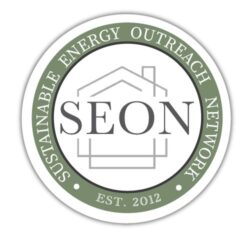This is one of those things you want to know before you build or retrofit / remodel your home.
As homeowners, it’s our responsibility to ensure that our homes are not just comfortable and beautiful, but also environmentally responsible. One critical aspect that is often overlooked in residential construction is the use of Portland cement. This traditional material, while tried-and-true, contributes significantly to global carbon dioxide emissions. However, the good news is that numerous sustainable alternatives to Portland cement have emerged that can help reduce our carbon footprint. Check out these exciting, eco-friendly alternatives (and remember, a certified high-performance builder will seamlessly incorporate these into your build without a second thought!):
Your Home, Your Planet: Sustainable Cement Alternatives
- Fly Ash: A byproduct of coal combustion, fly ash can replace up to 50% of Portland cement in your home’s concrete. This not only boosts the concrete’s strength and durability but can also translate into lower construction costs.
- Blast Furnace Slag: This byproduct of iron production can replace up to 70% of Portland cement, contributing to CO2 emission reduction while improving the durability and workability of your home’s concrete.
- Silica Fume: Although silica fume strengthens and enhances concrete durability, it can make the material more brittle. So, when used, it should be with caution.
- Calcined Clays: Heat-treated clays can replace up to 50% of Portland cement in concrete, making your home’s foundational structures more resilient and resistant to water damage.
- Rice Husk Ash: A byproduct of rice milling, it can replace up to 20% of Portland cement, enhancing concrete’s strength and durability, while also reducing agricultural waste.
- CarbonCure Technologies: This innovative technology injects captured CO2 into concrete during mixing, sequestering the CO2 and adding to the concrete’s strength.
- Hempcrete: Less strong than concrete, hempcrete is a superb choice for insulation applications in your home. It’s a carbon sink, too, as hemp plants absorb CO2 as they grow.
- Geopolymer Concrete: A mix of industrial waste products, this concrete variant maintains strength and durability, comparable to traditional concrete, and produces significantly fewer CO2 emissions.
- Carbon Negative Cements: An absolute game-changer, carbon negative cements absorb more CO2 than they emit. Companies like Blue Planet and CarbonCure are pioneering the way, creating building materials with a net negative carbon footprint.
Choosing the right Portland cement blend is a critical factor in construction.
Choosing the right Portland blend is just one of the reasons you want to hire a certified high-performance builder to build your new home or retrofit / remodel your old one.
- A certified high-performance builder, with their expertise in sustainable materials and practices, is well-equipped to make this choice and other important decisions during the construction or remodeling of your home. They ensure not just the structural integrity and aesthetic appeal of your home, but also its environmental friendliness.
- Navigating through these eco-friendly alternatives to Portland cement, each with its unique strengths and challenges, may seem daunting. That’s where a Certified High-Performance Builder comes into play.
- These professionals have the expertise to select the right materials based on your local circumstances and the specific needs of your home. They are adept at incorporating these new technologies and materials into their construction practices, resulting in homes that are both high-performing and environmentally responsible.
- Certified High-Performance Builders understand the importance of comprehensive quality control measures, ensuring that your home’s construction process meets the highest standards of sustainability. Their hands-on approach and dedication to green building make them invaluable partners in your journey towards a more sustainable home and a greener planet.
Remember, choosing a sustainable home doesn’t just mean a healthier environment – it also means a healthier living space for you and your family. It’s an investment in your future, and the future of the world we live in. As homeowners, let’s take this step towards responsible living and make our homes a testament to green living.
Click here if you need a certified high-performance professional to build your new home or retrofit your old one.
Read more:
- What is a high-performance home?
- What are the advantages to having a high-performance home?
- Air quality and a healthy home.
photo credit: Brands&People
